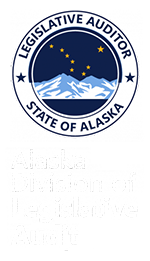| SUMMARY OF: | A Sunset Review of the Department of Corrections, Board of Parole |
Why DLA Performed This Audit
The purpose of this audit was to determine if there is a demonstrated public need for the Board of Parole’s (board) continued existence and whether its termination date should be extended. The board is scheduled to terminate on June 30, 2016, and will have one year from that date to conclude its administrative operations.
Report Conclusions
Overall, the audit concluded that the board is serving the public’s interest by acting as the parole authority for the State. As such, the board fulfills the constitutional requirement that the State establish a parole system. Additionally, the audit concluded that the board conducts its business in a professional and efficient manner. Although there are several operational improvements needed, the audit found a demonstrated public need for the board’s continuing operation. We recommend the board’s termination date be extended six years to June 30, 2022.
Analysis of Public Need
The board operated in the public’s interest by making parole decisions including granting and denying discretionary parole, authorizing parole revocations or rescissions, and establishing conditions of parole. These decisions were made in the context of both maintaining public safety as well as promoting cost-effective incarceration.
The board actively worked towards achieving the following key objectives:
- Serving as the parole authority for the State by considering applications for discretionary and special medical parole as needed;
- Imposing parole conditions for offenders scheduled to be released from prison custody and providing for supervision of those offenders;
- Taking action against parolees who violate conditions of their release; and
- Suggesting changes to regulatory requirements administered by the board.
Findings and Recommendations
- The board’s executive director should improve procedures to ensure required documentation for parole hearings is accurate and consistently included in parole files.
- The board’s executive director in coordination with Department of Corrections (DOC) management should implement documentation standards to ensure all offender and victim notifications are made in accordance with statutory requirements.
- The board should ensure proposed regulations address all statutory requirements related to its duties.
- DOC’s Administrative Services Division director should take steps to ensure the Alaska Corrections Offender Management System complies with state information technology security standards and national best practices.

